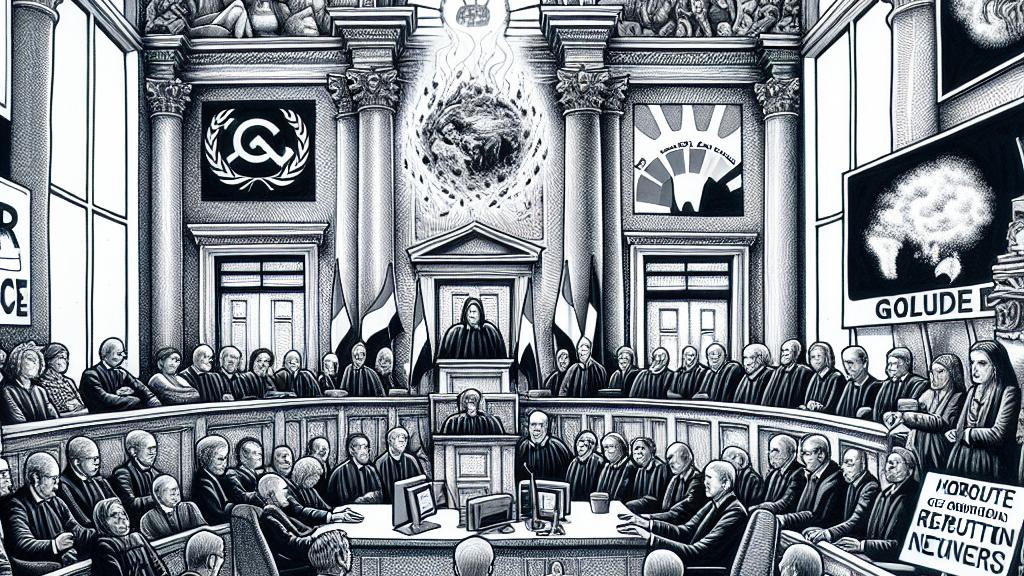Shell Appeals Dutch Court Ruling on Emissions Reductions
Overview
- In a pivotal turn of events, Shell successfully overturned a significant 2021 ruling that mandated a 45% reduction in emissions by 2030.
- While the court confirmed Shell's duty to cut emissions, it emphasized the company's right to choose how to achieve these reductions.
- This ruling comes during COP29, raising critical discussions about corporate environmental responsibility and accountability.

The Case Background
Imagine the buzz surrounding this landmark case in the Netherlands, where the court made headlines in 2021 by ordering Shell to cut its greenhouse gas emissions by 45% compared to 2019 levels by 2030. This ruling, driven by Milieudefensie, an environmental organization supported by over 17,000 Dutch citizens, was a game-changer. It signaled the first time a major corporation was legally compelled to align its business practices with the targets set by the Paris Agreement, aiming to curtail global warming to well below 2 degrees Celsius. This monumental case not only highlighted the urgent need for corporate accountability but also galvanized activists worldwide to push for stricter regulations on fossil fuel companies.
Court's Reasoning
Fast forward to the appeals court's recent decision. The judges upheld that Shell bears a responsibility to lessen its carbon footprint but articulated something crucial: the company has the autonomy to decide on its methods of reduction. In other words, while Shell must respond to climate change, imposing strict percentage cuts could inadvertently shift emissions to competitors rather than substantially mitigate them. The court's thoughtful reasoning explored this delicate balance, suggesting that practical market conditions must inform any regulatory measures. For instance, if Shell's restrictions merely push production overseas, the net impact on global emissions might be negligible. Such insights weave together the complexities of corporate operations and environmental duties, showcasing the need for a collaborative approach to the climate crisis.
Implications and Future Actions
What does this decision mean for the future of climate activism? Although environmental groups may feel disheartened, figures like Donald Pols of Milieudefensie remain tenacious. They argue that the conversation around corporate accountability has intensified, illustrating that major polluters cannot operate without scrutiny. As Shell boldly states its goal to become a net-zero emissions energy business by 2050, many critics are quick to point out the contradiction in its ongoing investments in oil and gas extraction. As this narrative unfolds, the potential for further appeals looms, keeping the dialogue about corporate responsibility alive. The battlefield for climate justice is not merely legal; it’s also about fostering a societal shift towards sustainable practices and ensuring that companies like Shell play their part in this global effort.

Loading...